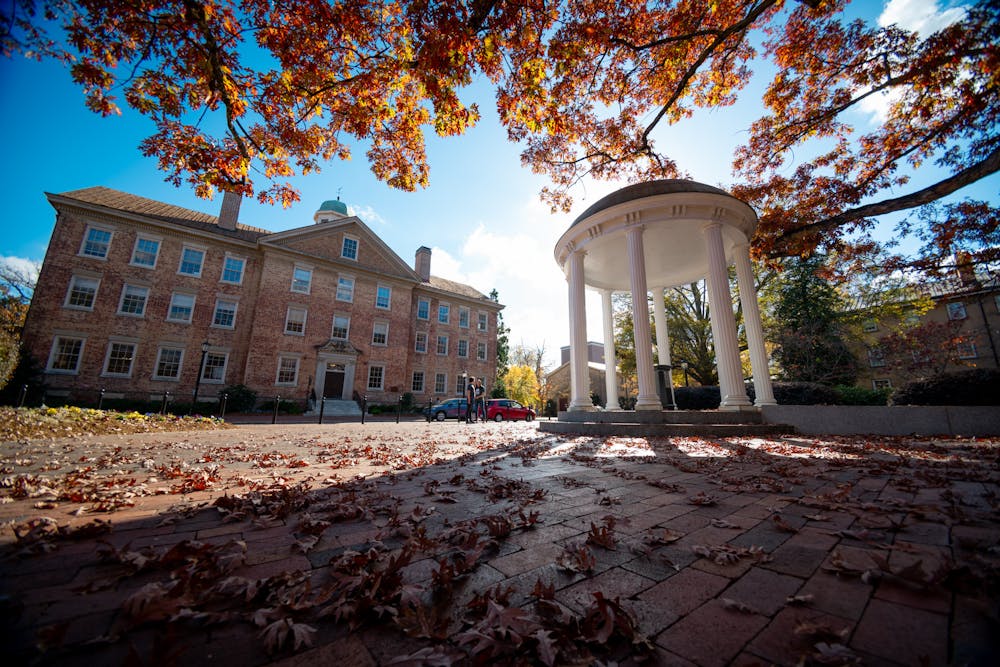The Coalition for Carolina Foundation, a nonpartisan group with the goal of improving UNC-Chapel Hill, hosted a discussion panel on Feb. 15 that included former UNC System presidents Thomas Ross and Margaret Spellings.
The discussion was moderated by former UNC-Chapel Hill Chancellor Holden Thorp. The three discussed an increase of political influence in the System’s governance and ways in which the UNC Board of Governors and the UNC-Chapel Hill Board of Trustees could become more bipartisan.
The coalition released detailed recommendations in June of last year for the improvement of the UNC System's governance, but Ross said the boards did not implement the bulk of them.
Among the recommendations, the coalition asked the BOG to create a new Center of Higher Education Governance, an entity that would provide orientations for new board members, create recommendations designed to clarify each board's role and keep the public updated by publishing a newsletter.
During the discussion, Ross said the center would provide ongoing and high-quality education for board members to help them understand their roles and responsibilities, which he said needs to be clarified.
All 24 BOG members are elected by the N.C. General Assembly. The UNC-Chapel Hill BOT is composed of eight members elected by the BOG, six members elected by the N.C. General Assembly and the ex-officio student body president.
Both chambers of the N.C. General Assembly currently have a Republican majority, which is reflected in the political makeup of both administrative boards.
“If you win elections in North Carolina, you get to appoint people to these boards,” Thorp said.
Of the 15 current UNC-Chapel Hill BOT members, only one of the members registered to vote in North Carolina, Student Body President Christopher Everett, is a registered Democrat. There was also one Democrat on the BOG, as of the time of publication of the June report.




